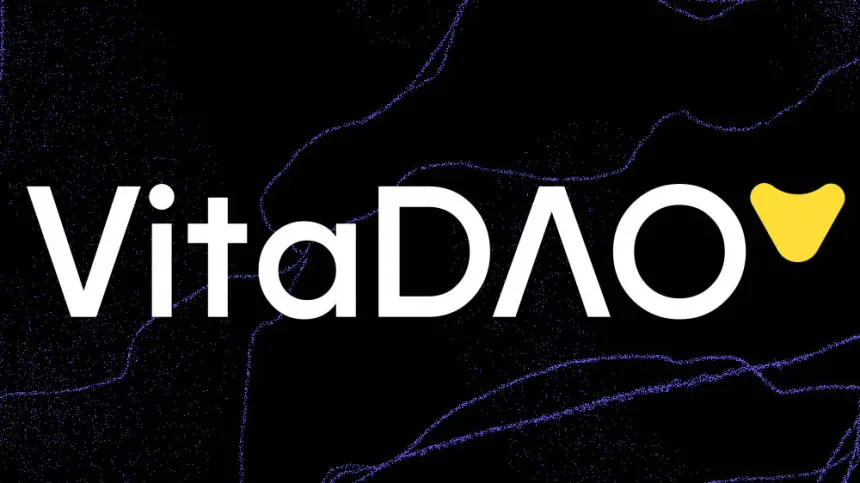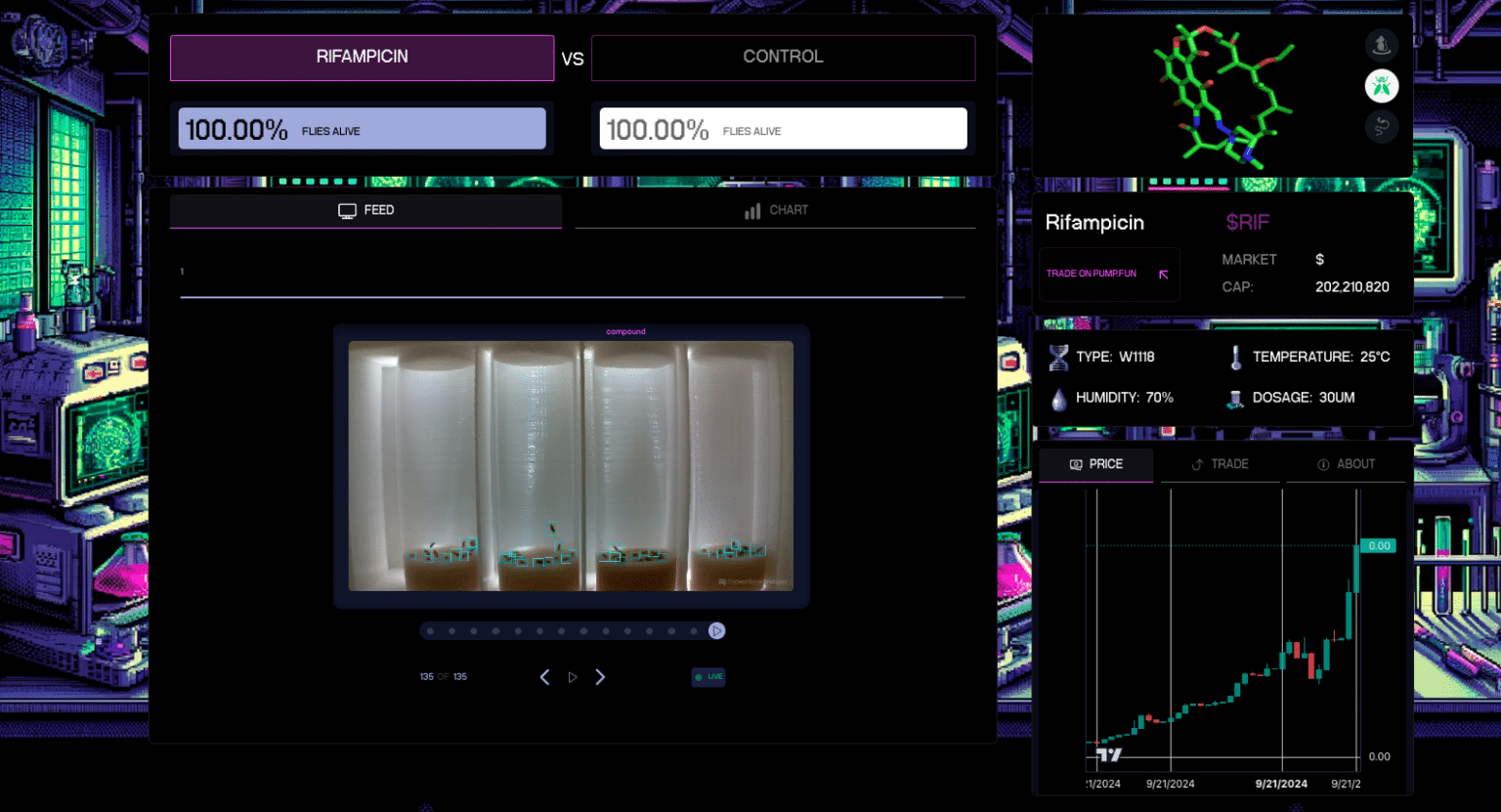What Is Decentralized Science (DeSci)?
Scientific research has long been the cornerstone of human progress, driving innovation and discovery. However, the traditional model of scientific inquiry often faces various barriers, such as limited funding, restricted access to data and inefficient peer review systems. Enter decentralized science (DeSci), a unique approach that leverages blockchain technology to revolutionize the way research is conducted, funded and shared.
In this article, we’ll explore the foundations of DeSci, examine the challenges within traditional scientific research and delve into the workings of decentralized science’s innovative mechanisms, such as tokenized funding, open-access data sharing and blockchain-powered peer review. We’ll also highlight some relevant projects, such as BIO protocol, and discuss the future potential of DeSci.
Key Takeaways:
Democratizing research: DeSci removes traditional barriers in order to make science more accessible and inclusive.
Innovative funding models: Crowdfunding and DAOs provide alternative ways to support research.
Transparency and collaboration: Blockchain structure ensures open data sharing and incentivized peer reviews.
What Is Decentralized Science?
Decentralized science, or DeSci, is a transformative movement that’s leveraging blockchain technology to address the inefficiencies and exclusivity of traditional scientific research. At its core, DeSci aims to democratize access to funding, decentralize decision-making processes and foster innovation in the way research is conducted, shared and validated.
By introducing mechanisms like tokenized funding through DAOs and blockchain-powered data sharing, DeSci empowers researchers, institutions and contributors to collaborate in a more open, transparent and inclusive environment. Unlike conventional systems that rely on gatekeepers (i.e., academic journals and grant committees), DeSci promotes equitable access to resources and ensures that intellectual property rights are maintained through digital assets such as NFTs. This new paradigm has the potential to revolutionize science, increasing its collaborative aspect and impact on a global scale.
Challenges Within Traditional Scientific Research
The traditional scientific research ecosystem faces numerous challenges that hinder innovation and progress.
Barriers to funding: Access to research funding is often monopolized by large institutions, leaving smaller projects and independent researchers sidelined.
Lack of transparency: Research processes ranging from funding allocation to peer review are often opaque, fostering mistrust and inefficiencies.
Data silos: Scientific data is frequently locked behind paywalls or restricted to specific institutions, limiting collaboration and reproducibility.
Inefficient peer review: The current peer review system is prone to bias, delays and a lack of incentives for reviewers, often compromising the quality and speed of research validation.
These systemic issues not only slow scientific progress, but also perpetuate inequalities in access and opportunity, underscoring the need for a decentralized alternative — hence, the birth of DeSci.
Decentralized vs. Traditional Science
Decentralized and traditional science both aim to advance human knowledge, but their approaches differ significantly.
DeSci leverages blockchain for transparency, ensuring research integrity, while “TradSci” relies on centralized institutions for validation. Accessibility is another key distinction: DeSci democratizes access to knowledge through open platforms, whereas TradSci often imposes paywalls and restricted access.
Collaboration flourishes within DeSci through blockchain-based networks, contrasting with the siloed frameworks of TradSci. Funding models also diverge, as DeSci uses decentralized mechanisms to reward innovation while TradSci depends upon institutional grants, which can be less efficient.
Together, these differences shape distinct pathways for scientific progress.
How Decentralized Science Works
Funding: DAOs, Tokenization and Crowdfunding
DeSci introduces innovative funding mechanisms that bypass traditional gatekeepers. Decentralized autonomous organizations (DAOs) allow global communities of researchers, patients and investors to pool resources and decide collectively how funds are to be allocated. For instance, AthenaDAO focuses on advancing women’s health research, a field that’s historically been underfunded.
Tokenization is another groundbreaking approach. Platforms such as Moleculeuse intellectual property represented as non-fungible tokens (IP-NFTs) to fund biomedical research. Researchers can tokenize their projects, offering fractional ownership to investors. Crowdfunding also plays a significant role, allowing scientists to raise capital directly from supporters and democratizing access to funding for research.
These types of models can potentially reduce bureaucracy, empower researchers to maintain control over their projects and ensure that funding aligns with community priorities rather than institutional agendas.
Open Access and Data Sharing
DeSci improves data accessibility through decentralized platforms that prioritize transparency and collaboration. Unlike traditional academic publishing, which often locks research behind paywalls, DeSci ensures open access. Platforms such as ResearchHub (backed by Coinbase founder Brian Armstrong) incentivize contributions by rewarding researchers with cryptocurrency tokens.
Data-sharing is further enhanced by decentralized storage solutions that securely store and share research data. For example, GenomesDAO enables individuals to own their genomic data, advancing medical research while protecting user privacy. This shift not only fosters collaboration across borders, but also reduces the duplication of efforts, which could accelerate scientific discovery.
Peer Review and Validation
The traditional peer review system is often slow, opaque and prone to bias. DeSci introduces decentralized platforms on which reviewers are incentivized with tokens, creating a transparent and efficient process. With the leveraging of blockchain technology, peer reviews can be permanently recorded, ensuring accountability and enabling the scientific community to track the quality of research.
These decentralized systems reduce reliance on academic gatekeepers, opening the door for a broader range of contributors and enhancing the integrity of scientific validation.
Intellectual Property Management With NFTs
Last but not least, DeSci uses NFTs to revolutionize intellectual property (IP) management. Through platforms like Molecule’s, researchers can tokenize their work — whether it’s a dataset, patent or publication — into IP-NFTs. These tokens grant creators direct ownership and control over the commercialization of their work, shifting power away from traditional institutions. NFTs also enhance transparency, as ownership and usage rights are verifiable on blockchains. This model incentivizes innovation, while ensuring that researchers are equitably rewarded for their contributions.
Case Studies: Real-World Applications of DeSci
BIO Protocol: Streamlining On-Chain Scientific Ecosystems
The BIO protocol represents a pivotal advancement in the DeSci ecosystem. It’s designed to address inefficiencies in funding and commercializing scientific research. BIO provides a comprehensive framework for biotech DAOs (bioDAOs), enabling seamless capital flow, talent acquisition and IP management within on-chain ecosystems.
By creating efficient markets for intellectual property (IP) generated by bioDAOs, BIO ensures perpetual funding and liquidity for scientific operations. Additionally, it standardizes frameworks, tokenomics and data systems, simplifying scalability for scientific communities. This innovation helps bridge the gap between researchers and investors, fostering an ecosystem in which scientific innovation can thrive. By integrating principles of decentralized finance (DeFi), BIO catalyzes a sustainable economy for groundbreaking research.
VitaDAO: Democratizing Longevity Research
VitaDAO is at the forefront of decentralized efforts to extend the human life and health span. As the first collective to fund early-stage longevity research, it operates as a bioDAO that pools resources to support projects aimed at combating aging. Backed by notable entities like Pfizer Ventures and Balaji Srinivasan, VitaDAO has raised $4.1 million to advance its mission.
One of VitaDAO’s core goals is to decentralize access to IP in the biotech world. By challenging the monopolies of traditional pharmaceutical companies, VitaDAO seeks to democratize emerging therapeutics and ensure that life-extending innovations are globally accessible. It funds research projects and helps spin out startups to commercialize these discoveries, offering a decentralized alternative to the monopolistic biopharma system.
Rifampicin: Gamifying Longevity Research
Rifampicin, a meme coin on the Solana blockchain, merges the playful appeal of meme culture with serious scientific exploration. Inspired by its namesake compound, an antibiotic with emerging potential in longevity research, the project gamifies life-extension science through the Pump Science platform.
In studies, Rifampicin has shown promise by activating cellular defense mechanisms that combat oxidative stress, a key factor in aging. Research using model organisms, such as the C. elegans nematode roundworm, has linked Rifampicin to improved protein quality and extended life spans. The project leverages Solana’s fast, low-cost blockchain to facilitate token transactions and community participation in gamified experiments.
Rifampicin exemplifies the way DeSci can blend public engagement with serious research by making longevity science more accessible and exciting to a broader audience.
Challenges and Limitations of Decentralized Science
While DeSci holds immense potential, several challenges must be addressed to achieve widespread adoption.
Regulatory hurdles remain a primary obstacle as the tokenization of scientific assets and use of cryptocurrencies raise complex legal concerns. Without clear frameworks, DeSci initiatives risk delays or restrictions, due to compliance issues.
Similarly, resistance from traditional academia poses a barrier, as entrenched peer-review and tenure systems are deeply rooted in the scientific community. Demonstrating DeSci’s tangible benefits will be essential to overcoming this inertia.
Additionally, technical barriers, such as researchers’ limited familiarity with blockchain technology, hinder participation. Developing user-friendly platforms and offering educational resources will be critical.
Data privacy and maintaining scientific quality within decentralized networks also require innovative solutions in order to ensure rigorous standards while protecting sensitive information.
Despite these limitations, DeSci’s potential to revolutionize science remains strong, provided the above challenges are met with strategic solutions and collaboration.
The Future of Scientific Research
Decentralized science, or DeSci, has the power to redefine the way that research is conducted and valued, in order to create a more inclusive, transparent and efficient system. By merging web3 principles with scientific innovation, DeSci promises to democratize access, enhance collaboration and accelerate breakthroughs in the world of scientific research.
As this movement evolves, hybrid models combining traditional and decentralized systems could emerge, fostering innovation while preserving scientific rigor. DeSci offers an optimistic vision of the future — one in which researchers will be able to collaborate equitably and globally, paving the way for a new era of discovery.
#LearnWithBybit


